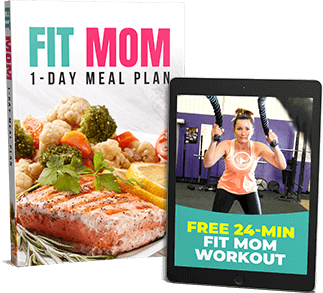What are macronutrients? You've surely heard of them before, but what exactly are macronutrients and micronutrients?
In short, they are the keys to achieving optimal health, wellness, and a better overall quality of life for you and your family.
But don't worry if you don't know a lot about them; you are not alone!
Knowing more about protein, carbohydrates, dietary fat, vitamins, and minerals, and how much of each to consume, can maximize your energy and overall health.
So, what are macronutrients and micronutrients? Here's everything you need to know about protein, carbs, fat, vitamins, minerals, and more!
Are these 20 nutrient-dense foods in your meal plan?
In just 6-weeks on our FOUNDATIONS Program, you'll transform your health and body, for the rest of your life!Join our 6-Week Program...
You'll Gain Health for Life!
What are Macronutrients?
The three macronutrients include those your body requires daily to maintain optimal health, wellness, energy, and metabolism.
Essential macronutrients include:
- Protein
- Carbohydrates
- Dietary fat
Many foods contain a healthy balance of all three macronutrients, or at least two of the three.
Consuming the right amount of protein, carbohydrates, and dietary fat, and knowing how to properly incorporate these macronutrients into your diet, helps you meet weight management and fitness goals.
These might include weight loss, fat loss, healthy weight maintenance, or muscle building.
Healthy Carbohydrates
Carbohydrates give you energy and help you maintain numerous essential body functions.
The Institute of Medicine recommends getting about 45-65% of your daily calories from carbohydrates, or at least 130 grams of carbohydrates daily for adults.
Many specialized diets, such as ketogenic, Atkins, and other low-carb diets, contain fewer than 45% of their calories from carbohydrates.
Finding the right balance of carbohydrates, protein, and fat is the best way to optimize energy levels, especially if you work out regularly.
Examples of healthy carbs to consider include:
Starchy Vegetables
Starchy vegetables are loaded with fiber, vitamins, and minerals.
Healthy carbs keep you full for longer time periods to help you gain long-lasting energy.
Examples of starchy vegetables that contain about 15 grams of carbohydrates per serving include:
- Sweet potatoes
- Corn
- Peas
- Black beans
- Kidney beans
- Navy beans
- Lentils
- Garbanzo beans
As a rule, fill about one-fourth of your plate with starchy vegetables or whole grains to make sure you're meeting daily starch requirements without overindulging in carbs.
Non-Starchy Vegetables
Many non-starchy vegetables contain about 5 grams of carbohydrates per serving and fewer calories than starchy vegetables.
While non-starchy veggies might not give you long-lasting energy associated with starchy vegetables, they can still fill you up and are loaded with fiber, vitamins, and minerals.
Examples of nutritious non-starchy veggies include:
- Leafy greens
- Cucumbers
- Tomatoes
- Broccoli
- Cauliflower
- Zucchini
- Squash
- Mushrooms
- Asparagus
- Bell peppers
- Celery
- Onions
When planning healthy meals and menus, aim to fill about half of each plate with non-starchy vegetables if you can.
Whole Grains
Whole-grains are fiber-rich starches that can keep you full for hours.
Examples of whole-grain, healthy carbohydrates that provide about 15 grams of carbohydrates per serving include:
- Brown rice
- Wild rice
- Oatmeal
- Whole-grain cereal
- Whole-grain bread
- Quinoa
- Whole-grain pasta
- Whole-grain couscous
As a rule, choose whole grains over refined grains (such as white rice and white bread) whenever possible.
Fill about one-fourth of each plate with whole grains or starchy vegetables.
Here are the most important carbs to avoid for weight loss!
Fruits
Fruits are rich in simple carbohydrates, meaning they give you a quick boost of energy.
Fruits are packed with fiber, vitamins, and minerals, and provide about 15 grams of carbohydrates in each serving.
Consider:
- Watermelon, cantaloupe, or honeydew melon
- Blueberries, strawberries, blackberries, raspberries, or cherries
- Bananas, apples, pears, peaches, or grapes
- Oranges, grapefruit, or tangerines
- Kiwi fruit
Aim to eat about 1-2 servings of fruit per day, depending on your total daily calorie needs.
Milk Products
Milk usually contains about 12 grams of carbohydrates in each 1-cup portion.
However, some high-protein milks contain fewer carbohydrates.
Yogurt and kefir are also sources of carbohydrates.
Make sure to choose milk products without added sugar whenever possible.
Greek yogurt usually contains fewer carbohydrates (about 5 grams) compared with regular yogurt.
Check the ingredient label on milk products if you're counting carbohydrates, as the carb content of dairy foods can vary widely.
Nuts and Seeds
Nuts and seeds are high in dietary fat, but also contain protein and a small number of carbohydrates (usually about 5 grams of carbs per serving).
Consider peanuts, almonds, walnuts, pistachios, pumpkin seeds, sunflower seeds, or nut butters to meet your daily macronutrient needs.
Burn RX is for women who are working on losing weight and want to see faster and easier results from their eating & exercise efforts. It helps your body burn more fat before, during, and after your workouts, which will improve your body composition while boosting your energy + metabolism.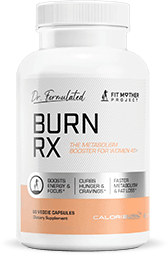
![]()
Meet Burn RX. The Safe & Effective Metabolism Booster To Help You See Faster Results

Nutritious Protein Foods
Protein is a key nutrient that's beneficial for numerous reasons.
Protein helps you build and maintain strong muscles and bones, boosts your metabolism, increases satiety, and helps you maintain a healthy weight.
Some high-protein foods are also rich in carbohydrates, while others aren't. Examples of nutritious protein foods to consider are:
Meat, Poultry, and Seafood
Protein-rich meat, poultry, and seafood usually contain about 20-25 grams of protein per serving.
Examples include:
- Lean organic steak, bison, and venison
- Chicken, turkey, and duck
- Salmon, tuna, and other types of fish
- Shrimp, scallops, crab, and other seafood
As a rule, aim to fill about one-fourth of each plate of food with nutritious meats, poultry, fish, seafood, meat substitutes, or eggs.
Eggs
Eggs and egg whites are also good sources of high-quality protein, containing about 6 grams of protein per whole egg or about 7 grams in each serving of two egg whites.
Eggs don't provide a significant amount of carbohydrates, but egg yolks contain about 5 grams of dietary fat.
Plant-Based Meat Substitutes
If you're following a vegetarian diet or simply enjoy meat substitutes every now and then, consider the following protein-rich plant foods (containing about 10-20 grams of protein per serving):
- Tofu
- Tempeh
- Miso
- Seitan
- Mycoprotein meat substitutes
- Veggie burgers
While plant-based meat substitutes may not offer quite as much protein as meat itself, these foods are still an excellent source of protein, vitamins, and minerals.
Milk Products
Milk and products made from milk are good sources of protein and calcium, often containing about 8-28 grams of protein in each 1-cup portion.
Many milk products are also sources of carbohydrates. Examples of nutritious, protein-rich dairy foods to consider include:
- Low-fat milk
- Plain Greek yogurt
- Low-fat cottage cheese
- Plain kefir
- Reduced-fat cheese
Aim to consume about 2-3 servings of milk products (or plant-based, calcium-rich alternatives), each day to optimize your health.
Protein Powder
Protein powder usually provides about 20-25 grams of protein in each 1-scoop portion.
Protein powder might contain soy, eggs, whey, casein, pea, hemp, rice, other plant-based proteins, or combinations of these high-protein ingredients.
Many types of protein powders are low in carbohydrates and dietary fat, but check the ingredient label to know for sure.
As a busy women, it’s challenging to stay consistent with healthy eating. That’s why we created SuperFuel… the delicious “all-in-one” nutrition shake for busy women 40+ to give your body the protein + key nutrients you need for more energy, fat burning, and muscle building.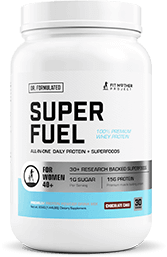
![]()
Meet SuperFuel. The Delicious Protein Shake Packed With 40+ Energy-Boosting Vitamins & Superfoods (Designed For Busy Women)

Legumes
Legumes are packed with carbohydrates, including dietary fiber, and protein.
They often provide about 15 grams of protein in each 1-cup portion, as well as 15 grams of fiber and 40 grams of total carbohydrates.
Examples of healthy legumes to consider include:
- Pinto beans
- Black beans
- Kidney beans
- Navy beans
- Lentils
- Chickpeas
- Green peas
Because legumes are high in carbohydrates, count them as starches when filling up your plate.
Aim to fill about one-fourth of your plate with legumes, other starchy vegetables, or whole grains.
Nuts and Seeds
Nuts and seeds are rich in protein in addition to heart-healthy fats and fiber.
Many nuts and seeds offer about 7 grams of protein, 14 grams of dietary fat, and 5 grams of carbohydrates in each serving.
Consider adding peanuts, pumpkin seeds, sunflower seeds, almonds, pistachios, other nuts or seeds, or nut butters to healthy meal plans.
In just 6-weeks on our FOUNDATIONS Program, you'll transform your health and body, for the rest of your life!Join our 6-Week Program...
You'll Gain Health for Life!
Healthy Fats
Dietary fat is a macronutrient that's just as important as carbohydrates and protein.
Fat is crucial for properly absorbing certain vitamins, achieving optimal brain function, and maintaining healthy hair, skin, and nails.
Fat is a source of energy that helps you feel full for longer time periods.
Many popular weight-loss diets, including ketogenic diets, are rich in heart-healthy dietary fats.
Consider adding the following fats to daily meal plans:
- Avocados
- Nuts
- Seeds
- Nut butters
- Olive oil
- Coconut oil
- Other plant-based oils
- Coconuts
- Olives
- Hummus
The Institute of Medicine recommends adults consume 20-35% of their daily calories from dietary fat.
This equates to about 40-70 grams daily if you're following a 1,800-calorie meal plan.
Check the nutrition facts label or use an online nutrition database to evaluate fat grams.
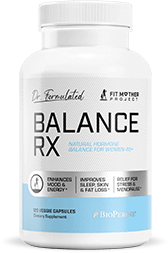
![]()
The Natural Hormone Balancer Busy Women 40+ Are Using For Improved Mood, Sleep, Skin, Stress & Easier Weight Loss

What are Micronutrients?
Micronutrients, which include vitamins and minerals, are just as important as macronutrients when it comes to achieving optimal health and wellness.
Vitamins and minerals are crucial for maintaining high energy, and essential functions and structures within the body.
Vitamins and minerals work together with macronutrients to keep you healthy and reduce the risk of serious health problems.
Vitamins
Vitamins are found in virtually all nutritious, whole foods.
Essential vitamins include:
- Vitamin A
- Vitamin C
- Vitamin D
- Vitamin E
- Vitamin K
- Vitamin B1 (thiamine)
- Vitamin B2 (riboflavin)
- Vitamin B3 (niacin)
- Vitamin B5 (pantothenic acid)
- Vitamin B6
- Vitamin B7 (biotin)
- Vitamin B12
- Folate
Eat a variety of fruits, vegetables, legumes, whole grains, dairy foods, other protein-rich foods, and heart-healthy fats to meet daily vitamin requirements.
Ask your doctor if taking a multivitamin supplement is right for you, to reduce your risk of developing a vitamin deficiency and side effects associated with it.
Minerals
Like vitamins, your body needs essential minerals on a daily basis to function properly and reduce the risk of health problems.
For example, calcium is a mineral that's crucial for bone health, heart health, and maintaining strong teeth.
Essential minerals include:
- Calcium
- Phosphorous
- Magnesium
- Iron
- Manganese
- Copper
- Iodine
- Zinc
- Molybdenum
- Sodium
- Potassium
- Chloride
- Fluoride
- Selenium
Most multivitamin supplements contain essential minerals in addition to vitamins.
Make sure to read supplement facts on multivitamin supplements to make sure they meet your daily requirements.
After a simple blood test, your doctor can let you know if certain vitamin or mineral levels are low.
In just 6-weeks on our FOUNDATIONS Program, you'll transform your health and body, for the rest of your life!Join our 6-Week Program...
You'll Gain Health for Life!
Tips for Planning Well-Balanced Meals
After answering the question “what are macronutrients and micronutrients?” you can now use the information you've acquired to plan nutritious meals and menus!
Use the perfect plate method to guide meal planning in the following way:
- Fill 1/2 of your plates with non-starchy vegetables
- Fill 1/4 of your plates with protein foods
- Fill 1/4 of your plates with fiber-rich starches
- Eat 2-3 daily servings of dairy foods or calcium-rich equivalents
- Consume 1-2 daily servings of fruits
- Eat healthy fats at each meal
- Drink a lot of water (at least 12 cups daily for women)
Consider some of the following meal and snack ideas to get started with healthy meal planning for you and your entire family:
Sample Breakfast Ideas
Breakfast #1: eggs, oatmeal, yogurt, and almonds with coffee or tea
Breakfast #2: a healthy protein shake recipe containing fruit
Breakfast #3: protein-rich bars with coffee or tea
Breakfast #4: Greek yogurt topped with strawberries and walnuts
Breakfast #5: an egg and vegetable omelet with avocados and roasted potatoes
Breakfast #6: eggs, quinoa, and avocado with veggies recipe and coffee or tea
Sample Lunch Ideas
Lunch #1: tuna avocado salad over whole-grain bread or greens
Lunch #2: chicken, rice, and vegetable soup OR chicken chili with beans
Lunch #3: A veggie burger or turkey burger wrapped in lettuce or a whole-grain bun
Lunch #4: whole-grain pasta topped with grilled chicken and olive oil-based pesto
Lunch #5: a Mediterranean avocado and salmon salad recipe
Sample Dinner Ideas
Dinner #1: grilled chicken, wild rice, and grilled asparagus
Dinner #2: shrimp fajitas recipe (served over brown rice in place of tortillas)
Dinner #3: tofu over wild rice or quinoa with broccoli and cauliflower
Dinner #4: baked catfish with corn and green beans
Dinner #5: crab and avocado summer salad recipe
Healthy Snack Ideas
Snack #1: hummus with pita chips, pea pods, carrots, celery, cucumbers, or tomatoes
Snack #2: cottage cheese with fruit and/or sunflower seeds
Snack #3: a protein shake or bar
Snack #4: reduced-fat cheese with fruit
Snack #5: Greek yogurt topped with bananas and pistachios or walnuts
Aim to consume 3-6 small meals daily, or 3 meals plus 2-3 snacks.
Fit Mother Project is the first sustainable health & weight loss program designed exclusively for busy mothers just like you... FM30X is the first sustainable weight loss program designed exclusively for *busy* mothers like you... JOIN OUR fit
mother
PROGRAM (FM30X)JOIN OUR FIT MOTHER 30X PROGRAM
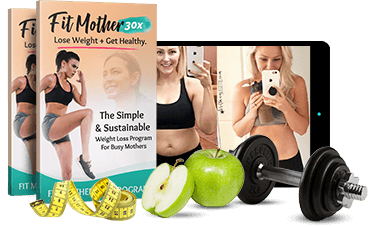
Knowing how to properly answer the question: “what are macronutrients and micronutrients” is just the beginning of your journey toward a healthier lifestyle.
The Fit Mother Project helps women of all ages and their families adopt healthy habits that last a lifetime.
The program offers fat-burning workouts, meal plans, motivational support from health experts, private social media group access, and much more.
Whether your goal is weight loss, fat loss, muscle building, or reducing chronic disease risks, FMP has you covered!
For more tips about planning well-balanced meals and menus, or to receive a personalized diet and exercise plan, sign up for the FREE Fit Mom Jumpstart today!
Consuming the proper amount of macronutrients and micronutrients has never been easier!
Erin Coleman is a registered and licensed dietitian with over 15 years of freelance writing experience. She graduated with her Bachelor of Science degree in nutritional science from the University of Wisconsin-Madison, and completed her dietetic internship at Viterbo University in La Crosse, Wisconsin. Prior to beginning her career in medical content writing, Erin worked as Health Educator for the University of Wisconsin-Madison Department of Internal Medicine. Her published work appears on hundreds of health and fitness websites, and she’s currently working on publishing her first book! Erin is a wife, and a Mom to two beautiful children.
Fit Mother Project is the answer you’ve been looking for. Inside the program, you’ll receive: Our Fit Mother 30X Program (FM30X) is the answer you’ve been looking for. Inside FM30X, you’ll receive: The FOUNDATIONS Program is created by Dr. Anthony Balduzzi for Women 40+ who want Lifelong Health. In just 6-Weeks following FOUNDATIONS, you'll experience: FOUNDATIONS has transformed 60,000 lives! Are you ready to experience true lasting health & results?If you’re a busy mom who wants to finally lose weight,
get healthy, and actually keep the pounds off for good,
this is the simple program you’ll love sticking to…
If you’re a busy mom who wants to finally lose weight,
get healthy, and actually keep the pounds off for good,
this is the simple program you’ll love sticking to…
LEARN MORE ABOUT FM30X »
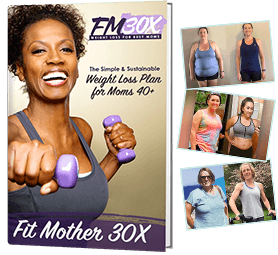
Learn More About FM30X

Join our 6-Week Doctor Designed Health Program.
You'll Gain Foundational Health for the Rest of Life.
*Please know that weight loss results & health changes/improvements vary from individual to individual; you may not achieve similar results. Always consult with your doctor before making health decisions. This is not medical advice – simply very well-researched info on what are macronutrients and micronutrients.













